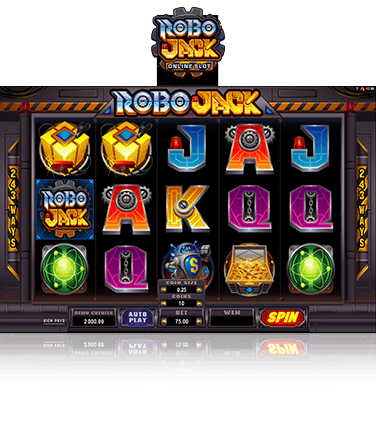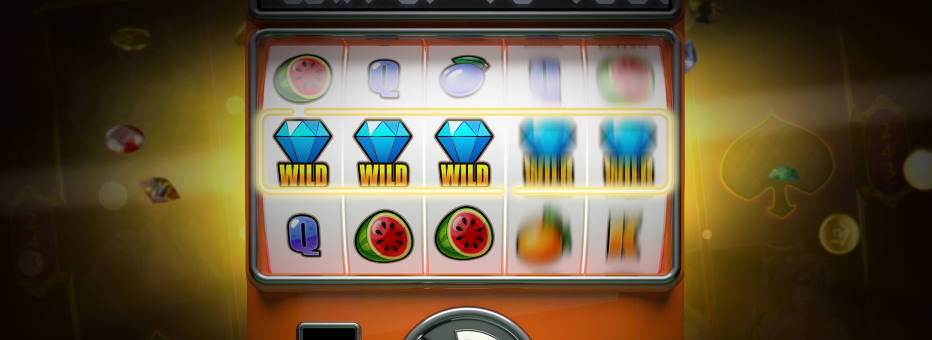Least Volatile Slot Machines
Posted By admin On 22/03/22- Most Volatile Slot Machines
- Least Volatile Slot Machines
- Least Volatile Slot Machines
- Most Volatile Slots
Your chances of winning with slot machines vary from one game to the next. You may first look to a game’s return to player (RTP) to determine your odds. RTP shows how much you can expect to win from a game in the long run. If a slot features 97% RTP, then it’ll theoretically pay back $97 for every $100 wagered.
Many online slots providers offer payout percentages for their games. You can usually find this info in the help screen or simply google it. Volatility is another important factor towards determining your winnings. It measures how closely short-term results line up with the RTP.
Slot Volatility Slot Volatility. The word volatile as applied to a slot machine basically refers to the amount of risk inherent to a specific game. It is used to describe how often and how much you can expect to. Volatility is a term used to describe the degree of randomness in a slot machine, and different slot machines have different levels of it. In this video, Pr. The free demo is also a Least Volatile Slot Machines great way to learn how to play a specific game before you decide to wager real money. Live Casinos Live Blackjack Live Baccarat Live Roulette Live. Slot machines feature extreme volatility when compared to other games. Oftentimes, you must wait for a big payout to come before you earn a profit or at least win back most of your previous losses. Highly volatile slot machines. Low Variance Slots – Best Low Volatile Slots of 2020 “Little drops of water make a mighty ocean”. Fans of low variance slots may take inspiration from this immortal line in Julia Carney’s poem, Little Things. If you are looking for those regular slots.
Unfortunately, volatility isn’t easily accessible. Most games don’t offer a volatility rating like they do payout percentages. Luckily, you can figure how volatile a slot is through one simple way. I’ll discuss this method along with other ways that you can measure your short-term odds of winning.
Why Is Volatility Important to Your Slots Results?
Slot machines offer a wide range of payouts. They deliver small prizes, jackpots, and bonuses. You earn more money for landing combinations with high odds. A prize that only hits 1 in every 500,000 spins will pay far more than a prize that’s delivered 1 in each 1,000 rounds. The former type of payouts are what make slot machines exciting. However, they also increase the volatility.
The house must retain its edge with each slot to make profits. Therefore, they can only program big payouts to hit every so often. Meanwhile, they program smaller prizes to be delivered more frequently. Low payouts help pad your bankroll as you chase bigger wins. In summary, larger payouts make slot machines more unpredictable. Low-paying prizes, on the other hand, decrease the volatility and see you win more often.
You should consider volatility whenever choosing a slot machine. Assuming you have a large bankroll, then you may not be too affected by short-term unpredictability. If you’re hoping to stretch out a small bankroll, then you should look for less-volatile slots. These will bring more payouts and keep you in the game longer.
Jackpots Tell Everything
You might already know what kind of volatility you’re comfortable with. But how do you determine the predictability of a slot machine? In the best-case scenario, you’ll choose a game that offers a volatility rating. Some slot machines feature this rating in the help screen.
For example, you might see a game’s volatility rated at 3 out of 5 stars. This figure means that the game falls somewhere in the middle of the spectrum. Again, though, most slots don’t offer this information.

Here’s a comparison to illustrate this point:
Slot #1
- A slot machine offers a $3,000 progressive jackpot.
- Based on the top prize, this game’s volatility is likely very low.
Slot #2
- A slot boasts a $2 million progressive jackpot.
- This huge top prize indicates a highly volatile game.
Remember, this method is rather rudimentary. However, the jackpot can still provide quick information on a slot machine’s proposed volatility. You should focus on the seeded amount when dealing with progressive jackpots. After all, the seed amount represents what providers must pour into the game.
Two games could feature identical $100,000 jackpots. But if one is seeded at $10,000 and another at $5,000, then the latter will probably be less volatile. After all, the provider doesn’t need to put as much money into the game in this case.
Other Factors that Determine Volatility
You can only learn so much by looking at the jackpot alone. Therefore, you should consider the following factors to get a truly accurate determination of volatility.
Size of Other Payouts

The jackpot isn’t the only payout that can be large. Some slot machines feature several large prizes beyond the jackpot. I consider any payout worth 500 coins or more to be big. Assuming a game boasts 3-4 or more prizes like this, and then it’s quite volatile. In contrast, games that don’t feature many, or any, payouts worth 500 coins will pay more consistently. They don’t have large prizes that they must make up for by putting you through numerous losing streaks.
Bonus Rounds
Most slot machines offer bonuses, including free spins, pick’em rounds, re-spins, and second-screen rounds. These bonuses are meant to increase entertainment value by introducing different gameplay. However, they can also feature big prizes. In some cases, the top bonus payout is larger than the jackpot. Such bonus prizes ramp up a slot machine’s volatility.
Random Features
In addition to bonuses, slots can also offer random features, including extra wild symbols, additional scatters, and expanding wilds. For instance, a slot might randomly throw more wild symbols onto the reels. Or, it could turn a regular symbol into an expanding wild. Such features help turn losses into wins and wins into even bigger prizes. However, these random payouts also take away from the regular wins.
Cascading Reels
This feature refers to when symbols from winning combinations disappear. Icons from above fall into their places and potentially create more wins. Cascading reels give you an opportunity to net more payouts in a single round. However, they’re yet another feature that boosts the volatility level. After all, cascading reels give you the opportunity to net lots of payouts in a single spin. You’ll go through plenty of rounds where you don’t win anything with these games.
Number of Winning Ways

Many modern slots offer countless ways to win. Some games now boast hundreds of thousands or even millions of winning ways. These Megaways slots feature reels that hold a varying amount of symbols. Certain games allow reels to hold up to 12 icons. This format is further enhanced by the lack of paylines. With Megaways, you form wins by landing symbols in adjacent reels. I’ve seen online slot machines that offer between 117,649 and 60,446,176 ways. This sheer number of winning possibilities is definitely exciting. However, the fact that you can unlock so many ways also makes the payouts less consistent.
Should You Play Volatile Slot Machines?
The key theme here is that volatile slots boast big jackpots and/or other features. These games are more exciting than less-volatile games, but they also don’t pay as frequently. You must weigh how you feel about waiting on payouts versus chasing big jackpots and bonus prizes. If the latter excites you most, then you shouldn’t have any trouble dealing with volatility.
However, you’ll likely experience frustrating times where you quickly lose your bankroll. These situations are often the result of volatile slot machines. Assuming you want to maximize your entertainment time while playing slots, then you should opt for more-consistent games. Sure, playing for 1,000-coin jackpots and only being able to unlock one bonus feature isn’t quite as thrilling. But you’ll win a higher volume of payouts on less-volatile slot machines.
Conclusion
If you’ve ever wondered why you go through extreme hot and cold streaks with slots, then you can look to volatility. Volatility determines how much you can expect to win in the short run. You can choose less-volatile games to boost the number of payouts you win in the immediate future.
Unfortunately, the same slots don’t offer big jackpots, Megaways, and multiple bonuses. You must take a greater risk when choosing slot machines that offer the latter. Everything comes down to your personal preferences. Are you hoping to stretch your bankroll, or spin for the largest jackpots and bonuses?
You can’t rely on jackpot size alone, though. Some slots are really volatile, because they offer large bonus prizes, Megaways, random features, and/or cascading reels. That said, you should take these other factors into consideration to get a more-accurate depiction on a game’s volatility.
Slots payouts can be frustratingly inconsistent. They pay much less frequently than most casino games, such as baccarat, blackjack, and roulette.
Slot machines feature extreme volatility when compared to other games. Oftentimes, you must wait for a big payout to come before you earn a profit or at least win back most of your previous losses.
Highly volatile slot machines offer the most features and/or largest jackpots. Meanwhile, low-volatility games deliver more consistent prizes.
Depending on if you like more features or frequent payouts, you’ll have a preference on volatility. Therefore, you’ll appreciate a rating on this matter.
Unfortunately, not all slot machines provide one of these ratings. This guide explains what you can do to estimate volatility in the absence of such information.
Some Developers Include a Volatility Rating
Some slots developers, especially those who make online games, offer helpful info in the pay table. For example, they may feature return to player (RTP) and hit frequency figures in the info screen.
Certain developers also rate the volatility of their slots. For example, a provider may show that a certain game offers 4.5 out of 5 volatility.
This information gives you an idea on how often to expect winning spins. The higher the volatility, the more dispersed your payouts will be.
It’s always helpful to have as much info as possible when playing a slot. Volatility ratings are definitely welcome when available.
What Exactly Does a Volatility Rating Tell You?
Most slot machines feature a wide range of prizes worth as little as 1x your stake up to 5,000x your stake or more. Therefore, they don’t pay out as evenly as other types of casino games.
You may feel lost regarding your chances of winning with slot machines. Volatility ratings give you an indication on how much you can expect to win.
Some developers give their slots a rating ranging from 1 to 5, or 1 to 10. You can use these figures to form an idea on your chances of winning.
You may like chasing huge prizes and don’t care how long your bankroll will last. In such cases, you want to play high-volatility slots with big win potential.
On the other hand, you might be a gambler who wants a better chance of ending each session a winner. Low-volatility games provide a better opportunity to reach this goal.
Why Is This Information Important?
Slot machines make bank management extremely tough. Their volatility can be brutal in the short run and cost you lots of money.
Again, you might be the type of player who can handle this volatility and still enjoys slots. But if you’re dealing with a limited bankroll, you won’t get much entertainment out of a volatile slot.
Here’s an example to illustrate this point:
- You deposit $30 onto a gaming site.
- You play a slot with a 9/10 volatility rating.
- You risk $0.50 per spin, feeling that this is a relatively safe bet in relation to your bankroll.
- Due to the high volatility, you have a rough session and quickly lose your $30 within the first half hour.

Of course, you can always deposit more money or play slots with lower minimum bets to extend your bankroll. However, you might currently only have enough funds for a one-time deposit.
A rating on volatility helps you better manage your bankroll under any circumstance. When dealing with limited funds, you might consider avoiding highly volatile slots to stretch your money further.
What Drives Up Volatility?
Before I get into how to determine volatility without a rating, I’d like to discuss exactly what makes slots more volatile. The following factors have a big impact on short-term results.
Features
Features ramp up the excitement in slot machines. They include various bonuses, such as expanding wilds, random wilds, scatter payouts, free spins, and win multipliers.

Some players judge games entirely based on the quantity and types of features. They want to enjoy revolutionary bonuses that can deliver big wins.
Of course, a good portion of the RTP is wrapped up in these extras. Gamblers must trigger and benefit from the features to win any serious money.
Maximum Prize
Many slots differ based on their maximum payout. Some games only offer a top prize worth 1,000x your stake, while others feature up to 50,000x payouts or more.
Bigger prizes definitely create more excitement. They can deliver life-changing money if you bet the right amount.
However, developers must make up for these large payouts by giving out fewer wins. Considering that you have low odds of winning the top prize, you’ll often lose quite a bit in any given session.
Small Payouts
Smaller prizes are on the other end of the spectrum from max payouts. They’re far from exciting, but they do play a role in the volatility.
A game with several low payouts (e.g. those ranging from 1x to 5x) will likely pay more frequently. Therefore, you can expect a larger percentage of your short-term bets coming back.
RTP
Return to player (RTP) refers to how much a slot pays back over the long run. Most land-based slot machines offer between 90% and 95% RTP, while many online slots deliver between 95% and 97% payback.
“Long run” is the key term here, because RTP figures aren’t realized until after millions of spins. Nevertheless, payback can affect how volatile slots are to some degree. High RTP reduces volatility by increasing the chances that you win money.
Most Volatile Slot Machines
Figuring Out Slots Volatility Without a Rating
Unfortunately, not all slot machines offer a volatility rating. You can use the following factors to determine volatility in the absence of a rating.
Look at the Features
Features may be the driving force towards slots popularity these days. However, they also increase the uncertainty, too.
You probably won’t win much money in the short run on games with several features. You should check the info screen or a review to see how many bonuses a particular game has.
Consider the Smallest Prizes
Small payouts aren’t the most inspiring parts of slot machines. However, they can ensure that you win more often.
A slot with three or more prizes ranging from 1x to 5x your stake probably has low volatility. The game is likely to deliver these payouts on a frequent basis.
Note How Much the Jackpot Is Worth
Slots with big maximum payouts or progressive jackpots give you the chance to live out your gambling dreams. You can win a six- or seven-figure payout through these games and potentially retire early.
But the developers that offer these slots also need to account for future big winners. They make up for the possible life-changing fortunes by delivering fewer small prizes.
Check Out the Hit Frequency
Hit frequency and volatility aren’t exactly the same thing. The former refers to your chances of winning a payout of any kind on a single spin.
However, hit frequency is helpful when trying to figure out volatility. A slot with high hit frequency (e.g. 30% to 40%) ensures that you get paid more often.
Conclusion
Least Volatile Slot Machines
It’s always better when developers provide a volatility rating. This way, you know exactly how volatile a slot will be and prepare accordingly.
If you play real money slots long enough, though, you’ll eventually come across entertaining games that don’t offer such ratings. In these cases, you can take steps to figure out the volatility yourself.
Here’s a recap of factors to consider when judging volatility yourself:
- Jackpot size/maximum payout
- Number of features
- Number of small payouts
- RTP
Least Volatile Slot Machines
You may not get a perfect figure on a game’s volatility with this information. But if you see a slot with multiple features and a 50,000x max payout, you can likely guess that it’ll offer wild short-term results.